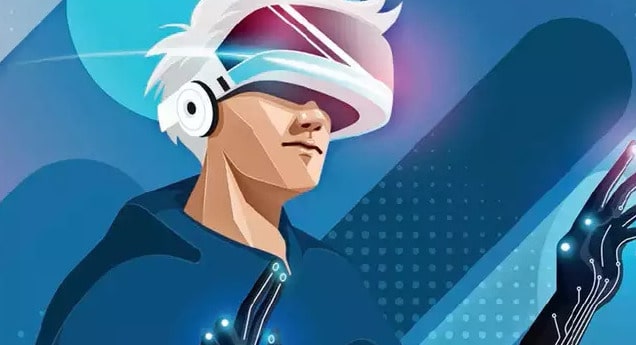The use of the metaverse is gaining momentum in India, with 70% of executives planning to incorporate this technology into their company’s operations, according to a recent report.
The metaverse, a virtual world that allows users to interact with each other and digital objects in a virtual space, has become increasingly popular in recent years. It has been used for gaming, virtual events, and socializing, among other things.
Now, Indian executives are seeing the potential of the metaverse to transform their businesses. The report, which surveyed 500 executives across different industries, found that 70% of them are planning to use the metaverse in some way.
Some of the potential applications for the metaverse in business include virtual meetings, training programs, and product demonstrations. The technology could also be used to create virtual showrooms or stores, allowing customers to browse products and make purchases without leaving their homes.
The report also found that executives are interested in using the metaverse to create new revenue streams. For example, they could sell virtual products, such as virtual real estate or digital goods, to users within the metaverse. They could also charge for access to virtual events or experiences. The potential benefits of using the metaverse in business are clear, but there are also some challenges that need to be addressed. One of the biggest challenges is ensuring that the technology is accessible to everyone, regardless of their level of technical expertise.
Another challenge is the need for robust security measures to protect against hacking and other forms of cybercrime. As more and more valuable assets are moved into the virtual world, it will become increasingly important to ensure that they are secure. Despite these challenges, the report suggests that Indian executives are optimistic about the potential of the metaverse. They see it as a way to stay competitive in a rapidly changing business landscape, and to reach new customers in innovative ways.
One industry that could benefit greatly from the metaverse is retail. With the rise of e-commerce, brick-and-mortar stores have struggled to attract customers. But with the metaverse, retailers could create virtual stores that offer a more immersive shopping experience. Customers could browse products, try them on virtually, and even interact with sales representatives in real-time. This could help retailers to stay competitive and reach customers who are looking for a more convenient and engaging shopping experience.
The report also found that executives are interested in using the metaverse to enhance their recruitment and training programs. By creating virtual simulations, they could provide employees with hands-on experience in a safe and controlled environment. This could be particularly useful for industries that require a high degree of technical expertise, such as engineering or healthcare. By using the metaverse to train employees, companies could ensure that they are prepared for real-world situations and can perform their jobs with confidence.
Overall, the report suggests that the metaverse has the potential to transform the way businesses operate in India. By incorporating this technology into their operations, executives can stay competitive, reach new customers, and create new revenue streams. However, it will be important for businesses to approach the metaverse with caution and to ensure that they have the necessary resources and expertise to make it work. With careful planning and execution, it could prove to be a game-changer for businesses in India and around the world.
The report goes on to discuss the various ways that businesses can take advantage. For example, online conferences and meetings could be hosted in virtual spaces, allowing executives to connect with counterparts from other countries without ever leaving their offices. By leveraging the power of 3D animation and interactive media, businesses can enhance customer experiences, creating more engaging and immersive experiences for their customers. Furthermore, businesses can use it to create virtual stores and marketplaces, allowing them to reach a larger audience and tap into new markets.










